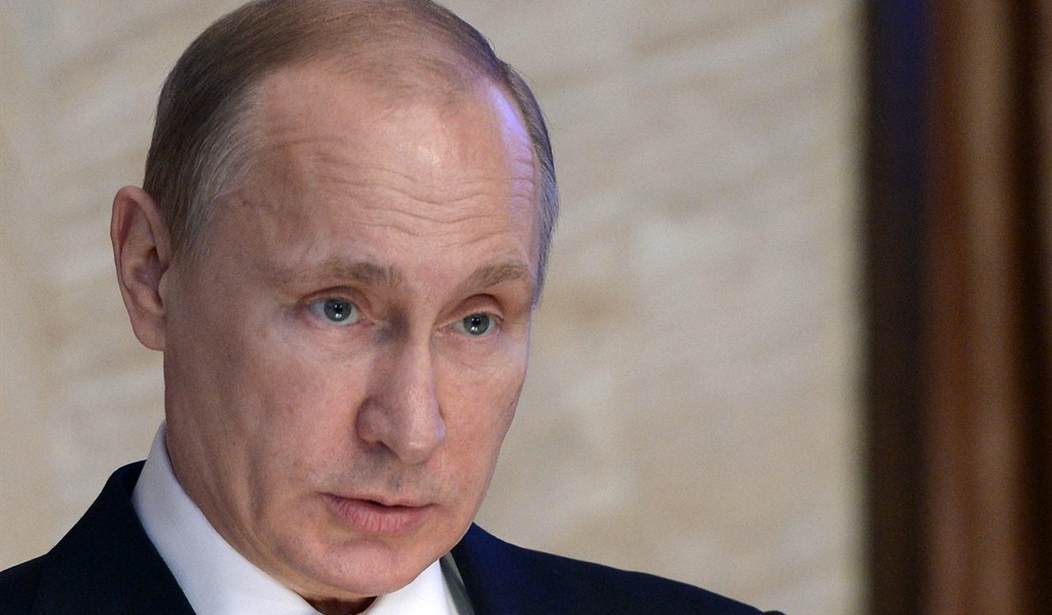PARIS -- We're witnessing arguably the most unfocused and undisciplined U.S. foreign policy in history under President Barack Obama. If I'm seeing it and you're seeing it, then it's a safe bet that America's opponents are seeing it -- and attempting to exploit it for long-term gain.
What might that exploitation look like? Take a dog to a park and toss some sticks around, one after another and in different directions. Watch Fido zigzag around, bark at all the sticks in frustration, fail to retrieve one in favor of running after another.
Agence France Presse reported concerns last week over what Russian ships might be up to at Olavsvern, a former naval base in Norway that the Russians now rent from Norwegian businessman, who bought it from the Norwegian military for a mere $5 million in 2013 after the base was inexplicably put up for sale. Go fetch.
Russia reportedly launched a series of "puzzling" military drills in the Arctic recently. Go fetch.
>Nicaragua has expressed interest in purchasing Russian MiG-29 jets. Very poetic headline-grabber, comrades. The last time we heard about a similar Russian sale to Nicaragua, they were MiG-21 jets, and the situation put Ronald Reagan in the hot seat right after he was re-elected. Go fetch.
The Russians are doing all of this stick-tossing because they have seen that it diverts attention from what should be U.S. foreign policy priorities. After all, the U.S. was so distracted by Russian involvement in Syria and Ukraine that it forgot about terrorists, and hence the Islamic State came into being. By allowing itself to be goaded into shoving its nose into everything without sufficient counterbalancing economic returns from such forays, the U.S ironically risks a fate similar to that of the former Soviet Union, which failed to keep its economic powder dry while overstretching militarily. Sound improbable? It really isn't.
Recommended
On some level, the Obama administration understands that national economic health is now synonymous with national security. To wit, Obama recently announced an executive action permitting the U.S. Treasury "to impose sanctions on individuals or entities that engage in malicious cyber-enabled activities that create a significant threat to the national security, foreign policy, or economic health or financial stability of the United States."
Sanctions are a diplomatic tool traditionally used against entities that pose a national security threat to America. The use of sanctions is now being extended to those who are perceived to infringe on America's "economic health or financial stability." That's extremely significant.
What, exactly, is the threshold of an economic threat that rises to the level of sanctions? And in the murky world of information security, where attacks from unidentifiable foes are often simply attributed to China or Russia by default, how can we be certain that this new diplomatic tool won't be abused? If it is, it could exacerbate diplomatic friction in a realm where proof is highly elusive.
While proactive measures are well and good, what appears to escape this administration is the need to just as proactively ensure a return on investment. A general rule should be that if you don't have a Marshall Plan to ensure long-term post-conflict engagement and stability, cut your losses. Otherwise, the end result will likely benefit your competitors.
Take the recent example of Team Obama leading the charge on lifting Iranian sanctions. Presumably, the administration figures that America has something to gain economically. But how legitimate is that assumption?
China, which was also at the negotiating table, has just approved Iran as a founding beneficiary of the new, China-led Asian Infrastructure Investment Bank. Given the context, this arrangement has the potential to be the Marshall Plan on steroids.
Meanwhile, Reuters reports that National Iranian Oil Company officials are set to meet with buyers from Chinese refineries, who are no doubt getting their straws ready to guzzle even more of that black-gold milkshake. While the Chinese are playing smile-and-nod with the Death-to-America regime, Obama can't even bring himself to focus foreign policy on the comparatively well-mannered Canadians in order to get the Keystone XL pipeline finished. Completing the pipeline would help America achieve energy independence and download the burden of the entire Middle Eastern mess onto the newly formed Arab military coalition.
What's the long-term, take-home reward for any of America's current forays, and are they really America's best long-term options? That part always ends up being an afterthought for the Obama administration.
























Join the conversation as a VIP Member